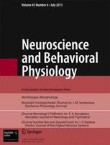
This article analyzes possible approaches to studies of the mechanisms maintaining memory at the level of long-term rearrangements of the level of expression of the genes specifically involved in forming and maintaining memories. Several candidate memory maintenance genes are now known. Developments over the last 2–3 years using genetic constructs directed to altering the operation of various genes have demonstrated the possibility of controlling the operation of neural networks in physiological and pathological conditions. Complex locus-specific chromatin rearrangements in the regulatory areas of plasticity genes in response to various external influences (training) may ultimately overcome long-term changes in the expression of these genes and may provide an approach to regulating the material substrates of memory. Subtle modulation of genome operation during memory formation is achieved by factors including locus-specific changes to the epigenome (post-translational modifications of histones and DNA methylation). Further development of approaches to selective epigenetic regulation of the operation of various plasticity genes (epigenome editing) may be of great interest for studies of the physiological functions of the nervous system and correction of behavioral reactions, memory, and a number of pathological states.



No comments:
Post a Comment